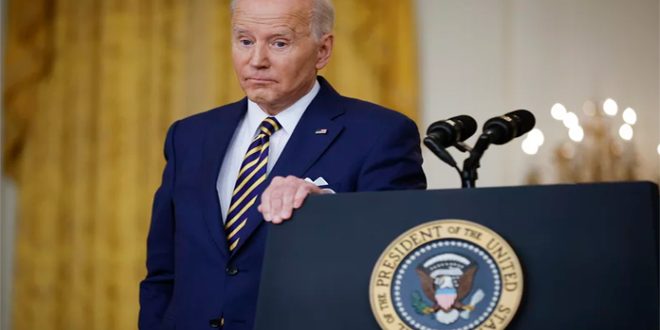The “American Tinker” Magazine has described the sanctions imposed by the administration of the US President Joe Biden and its allies in Europe on Russia, on the backdrop of the Russian military operation in Ukraine, as “counterproductive and idiotic.”
The magazine on Tuesday published an article by writer Thomas Lifson in which he said that “oil is sold on a global market. Restricting sales via refusing to buy oil from one producer like Russia does not mean that the Russian oil stays in the ground or accumulates in storage facilities. It just means that the Russian oil will find other buyers who will pay a little less than Russia would have gotten without the sanctions.”
He pointed out that number-two oil-producer, Saudi Arabia, is importing significant and increasing amounts of oil from Russia and this illustrates the pointlessness and counter-productivity of the sanctions on Russian oil sales spearheaded by the Biden administration that have helped send the price of crude oil soaring.
But the discount comes off the higher prices set on the world market as the countries imposing sanctions have to turn elsewhere to bid for oil supplies. They have to pay more, and the world market price for oil goes up, Lifson clarified.
Meanwhile, Saudi Arabia is buying the Russian oil at a discount from the higher world prices caused by imposing the sanctions and it uses the Russian oil as fuel for electricity generation, he said.
“Russia wins by evading the sanctions, and by overall receiving much higher prices for its oil (and gas) exports than it did before the sanctions. Saudi Arabia wins by reaping higher overall prices, and by importing cheap oil and selling the oil formerly used for electricity at higher prices than the imports cost it. So who loses?” asked Lifson.
“That would be you and I, and the oil consumers around the word, especially in the countries that are imposing sanctions on Russia,” he made it clear.
The sanctions are, in fact, counterproductive and idiotic — as is true of many of the Biden administration’s foreign policy initiatives, he emphasized.
Hamda Mustafa

